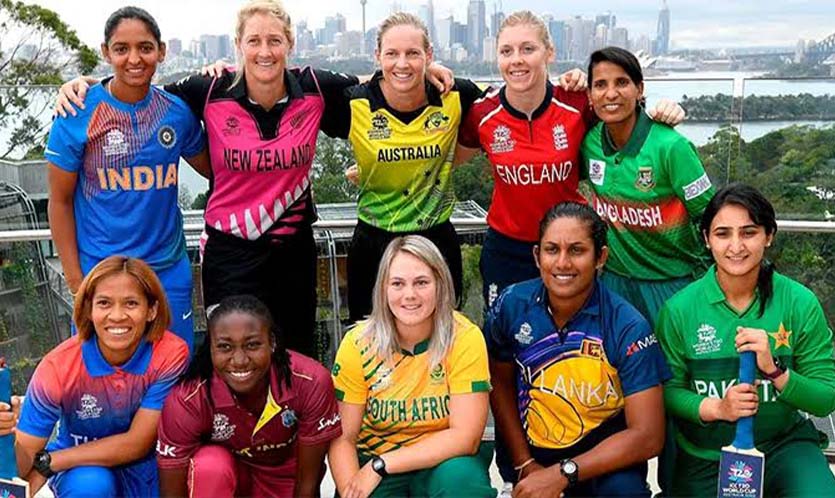The World Cricketers’ Association (WCA) has released a comprehensive report aimed at addressing what it calls the “broken global structure” of cricket. This review outlines bold reforms to improve scheduling, economic fairness, governance, and player regulation. Key proposals include creating protected windows for international cricket, restructuring revenue distribution to ensure a fairer share for all nations, and establishing an independent global leadership body.
Addressing the Chaotic Cricket Calendar
The WCA describes the current cricket schedule as “chaotic, inconsistent, and confusing,” highlighting the clash between bilateral international cricket and the growing number of T20 leagues. With a men’s T20 league operating nearly every day of the year, both formats are competing for players, which reduces the overall quality of the game.
To resolve this, the WCA recommends establishing four 21-day protected windows annually for “Core International Cricket.” During these periods, no T20 leagues would take place, allowing national teams to field their strongest squads. The proposed system also includes multiple divisions where teams would play a structured series over two years, incorporating all three formats (Test, ODI, T20). Each format would contribute to league tables culminating in major ICC events.
The report outlines an example calendar for 2028, with the four international windows placed in February-March, May-June, September, and December. The T20 World Cup is scheduled for October-November, while July is reserved for the LA28 Olympics. A similar structure is proposed for the women’s game starting in 2029.
Reforming Cricket’s Economic Model
According to the WCA, the current revenue-sharing model is imbalanced. Currently, 83% of the sport’s total revenue is concentrated in just three countries, while bilateral cricket outside these nations generates less than 4%. Additionally, players receive only about 10% of the total revenue.
The report suggests that a more structured calendar could generate an additional USD 246 million annually. It advocates for a fairer revenue-sharing model where the top 24 cricketing nations receive a minimum of 2% and a maximum of 10% of ICC revenues. This change would significantly reduce the Board of Control for Cricket in India’s (BCCI) share from 38.5% to 10%.
Another key proposal involves establishing a global growth and development fund. This fund would ensure financial support for the top 24 cricketing nations and be financed through ICC event revenues, T20 leagues, and pooled media rights. The WCA acknowledges that achieving such a redistribution is challenging and hints that an alternative global cricket product may need to be created if consensus cannot be reached.
Improving Leadership and Governance
The report identifies a lack of independent leadership as a significant issue within the sport. It argues that cricket is governed by the most powerful national boards, leaving no room for representation from T20 leagues, franchises, players, or women.
As an interim measure, the WCA recommends forming a “Global Game Leadership Committee” to oversee and make recommendations to the ICC Board. This committee would include equal representation from national boards, T20 leagues, players, and independent members. Its objectives would include managing the new calendar, improving revenue distribution, and transforming the ICC into a truly global governing body rather than a members-only organization.
Regulating Player Movements
The WCA criticizes the ICC’s current regulations on player participation in T20 leagues, particularly the No-Objection Certificate (NOC) system, which it describes as exploitative. The report argues that these regulations unfairly prioritize international cricket over franchise leagues, a stance that is outdated given the sport’s modern transnational nature.
To address these issues, the WCA proposes better regulation of player movements through tracking systems and measures to protect player rights. This includes setting minimum professional contract standards and creating a dispute resolution mechanism.
A Call for Change
The WCA emphasizes that their report, titled “Protecting History, Embracing Change: A Unified, Coherent, Global Future,” is intended to spark debate and encourage meaningful reform. Heath Mills, WCA chairman, noted that the review highlighted a widespread desire for change and the need to address the sport’s structural flaws.
While some of the proposed reforms represent significant shifts from the current system, the WCA remains committed to engaging with stakeholders across the cricketing world. Paul Marsh, who chaired the subcommittee behind the review, described the sport as being at an “inflection point” and urged the global cricketing community to embrace difficult discussions for the sake of a sustainable and equitable future.
The report has already been presented to the ICC’s cricket committee, though initial responses suggest resistance to some of the more radical proposals. Nevertheless, the WCA remains determined to push forward with its vision for a unified and fairer global cricketing landscape.



